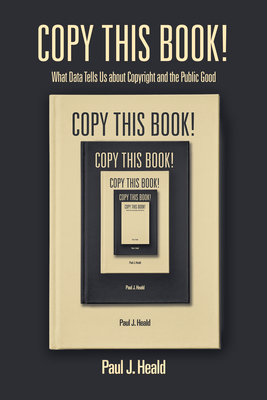Expedite your nonfiction book discovery process with Readara interviews, summaries and recommendations, Broaden your knowledge and gain insights from leading experts and scholars
In-depth, hour-long interviews with notable nonfiction authors, Gain new perspectives and ideas from the writer’s expertise and research, Valuable resource for readers and researchers
Optimize your book discovery process, Four-to eight-page summaries prepared by subject matter experts, Quickly review the book’s central messages and range of content
Books are handpicked covering a wide range of important categories and topics, Selected authors are subject experts, field professionals, or distinguished academics
Our editorial team includes books offering insights, unique views and researched-narratives in categories, Trade shows and book fairs, Book signings and in person author talks,Webinars and online events
Connect with editors and designers,Discover PR & marketing services providers, Source printers and related service providers

Copy This Book!: What Data Tells Us about Copyright and the Public Good
Law > Intellectual Property - Copyright
- Stanford University Press
- Paperback
- 9781503614307
- 9 X 5.9 X 0.5 inches
- 0.65 pounds
- Law > Intellectual Property - Copyright
- (Single Author) Asian American
- English
Readara.com
Book Description
In Copy This Book!, Paul J. Heald draws on a vast knowledge of copyright scholarship and a deep sense of irony to explain what's gone wrong with copyright in the twenty-first century. Distilling extensive empirical data to clearly show the implications of copyright laws and doctrine for public welfare, he illustrates his findings with lighthearted references to familiar (and obscure) works and their creators (and sometimes their creators' oddball relations). Among the questions he tackles: How does copyright deter composers from writing new songs? Why are so many famous photographs unprotected orphans, and how does Getty Images get away with licensing them? What can the use of music in movies tell us about the proper length of the copyright term? How do publishers get away with claiming rights in public domain works and extracting unmerited royalties from the public? Heald translates piles of data, complex laws, and mysterious economics, equipping readers with the tools for judging past and future copyright law.
Author Bio
Paul Heald, the Albert J. Harno and Edward W. Cleary Chair in Law, joined the Illinois faculty in 2011 after 22 years at the University of Georgia School of Law, where he was the youngest faculty member in the law school’s history to be named to a chaired position. He is also a fellow and associated researcher at CREATe, the RCUK Centre for Copyright and New Business Models in the Creative Economy, based at the University of Glasgow.
He spent much of 2018 as an Erskine Fellow in the Economics Department of the University of Canterbury, Christchurch, New Zealand, and as a Research Fellow at the Stellenbosch Institute for Advanced Study in South Africa.
Heald lectures on patent, copyright and international intellectual property law around the world and has previously held visiting positions at universities in Buenos Aires, Bournemouth, London, Lyon, Regensburg, and at the University of Chicago, University of Texas, and Vanderbilt University. He also ran the UGA/OSU program at St. Anne’s College, Oxford University, during the spring of 2009. He was Herbert Smith Visitor at Cambridge University in 2012.
Recent publications have focused on economic aspects of the public domain, and theoretical papers on optimal patent remedies, the role transaction costs in patent law, and the problem of patent pricing as well as empirical studies on best-selling fiction and musical compositions and the behavior of famous trademarks in product and service markets. He has also written two books on law and literature, and three novels, Death in Eden (2014), Cotton (2016) (selected as an Okra Pick by the Southern Booksellers’ Association), and Courting Death (2016).
Heald earned his bachelor’s and master’s degrees in comparative literature from the University of Illinois. As an undergraduate there, he fenced for two Big Ten championship teams and placed 18th in epee at the 1981 NCAA championships. He earned his law degree cum laude from the University of Chicago, where he served on the University of Chicago Law Review. Heald clerked for Judge Frank M. Johnson Jr. of the U.S. Court of Appeals for the 11th Circuit, who was recently portrayed by Martin Sheen in the movie Selma.
Source: University of Illinois - College of Law
Videos


Community reviews
No Community reviews

